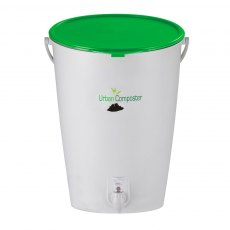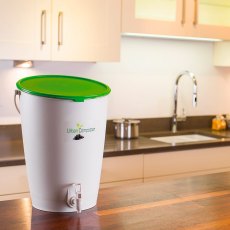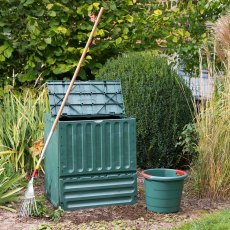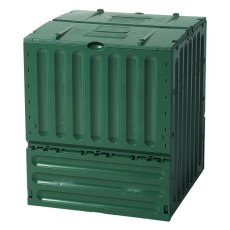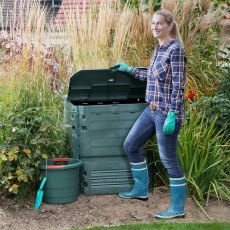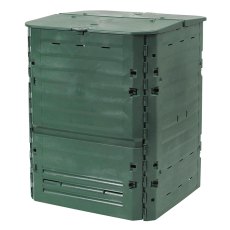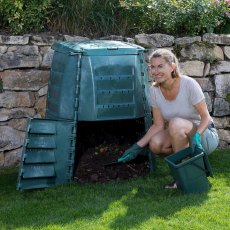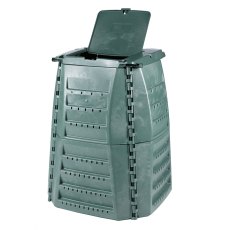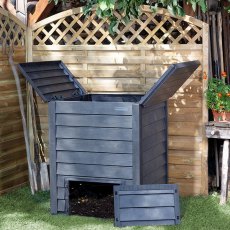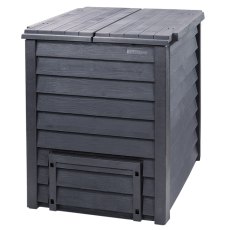Garden Compost Bins FAQs
What is composting?
Composting is the layering of organic waste to break down the organic material with the aid of microorganisms in the presence of oxygen. The end product is known as compost.
What are the benefits of composting?
Compost is a valuable soil improver for your garden. Unlike simply adding mineral fertilisers, compost retains and impoves the soil fertility. Another benefit of composting at home is that it can reduce your household waste by up to 30%. Composting at home is a way of protecting the environment. Composting also saves money by saving on domestic waste charges, saves on the cost of a bio-waste container and saves on fertiliser because compost is very rich in nutrients. To view our full range of Compost Bins click on Garden Compost Bins
Where should I locate my compost bin?
When choosing a location, ensure your composter is easy access from the house and garden. You should be able to get to the compost bin easily with a wheelbarrow. Install the composter at least 0.5m away from your neighbours property. Your compost bin needs to be installed directly on the ground to allow the microorganisms to access the composter.You should fit grating on the base of your compost bin to protect against rodents.
A compost bin cannot be placed on concrete, stone or asphalt. It must be placed over the ground. Loosen the compressed ground before installing. The compost bin will work more effectively if you locate the composter in the sun or semi-shade under a tree or a hedge. This allows the heat of the sun to evaporate the water from it's contents but it must not dry out completely. Moisture is needed for the rotting process but not too much moisture. The compost bin should also be protected from the worst of the wind.
How do I start off the composter?
When first filling, use a bulky structured material like broken twigs as the bottom layer to allow air into the compost from below. This also allows excess water to drain off. Ensure a good mix of garden and kitchen waste in layers if possible. The better the compost is mixed, the easier it rots. Fill your compost bin slowly with organic waste produced on a daily basis. Wet materials should be mixed with dry one and coarse materials with fine ones. Be seslective in what you add to your compost bin.
Can you compost in the winter?
In order to compost properly in the winter, the dry leaves and shredded garden waste collected in the autumn should be added to the compost bin. The contents of the composter break down slower over the winter months but the process will continue as the microorganisms actively produce heat.
What waste can I put into my compost bin?
Fruit and vegetable waste, coffee grounds, tea leaves, crushed eggshells, pot plants, cut flowers, spent potting soil, lawn cuttings and leaves are all great for composting.
Meat, fish, leftover food, bread, suasage, cheese rind, bones, diseased plants, coal or charcoal ash, cigarettes, hoover bags, litter, medicines and nutshells should NOT be put into your compost bin.

 Login
Login
